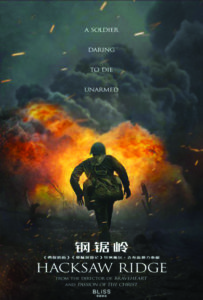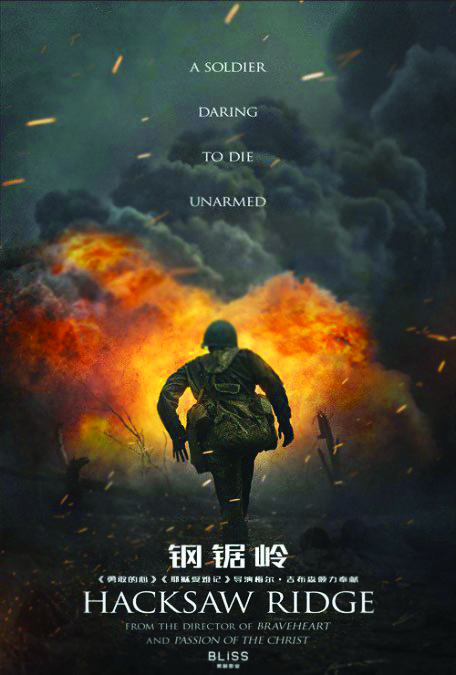Gore, Glory and Mel Gibson

It has been over a decade since Mel Gibson fell from the graces of the American glitterati. The filmmaker and actor’s career effectively tanked in 2006 when it came to light that he had verbally assaulted a police officer with anti-Semitic rhetoric after being arrested for driving under the influence.
Since his arrest, Gibson has taken a noticeable backseat in the industry he once dominated. Since his arrest, he has only emerged here or there to act in an occasional film.
Over the last couple of years, however, Gibson has continued in the movie world as a producer and director. His most recent directorial venture is the war epic, “Hacksaw Ridge” which premiered on Nov. 2 and is in theatres now.
The movie follows the amazing true story of Desmond Doss, a devout Seventh Day Adventist, pacifist and World War II veteran. Doss, played by Andrew Garfield, was the first conscientious objector in American history to be awarded the Congressional Medal of Honor.
In the film, Doss joins the military as a medic in order to do what he thinks is right and help in the fight against the Axis powers. Things take a sour turn for him at boot camp, however, when it is found out that he is a conscientious objector.
During his stay in camp, Doss is ridiculed and physically attacked by his fellow recruits for being, in their eyes, a coward. He finds no allies in his superiors, as his commanding officers attempt to have him psychologically discharged and court marshalled for “refusing orders.”
As Doss overcomes these struggles, he and his unit are shipped to the Pacific island of Okinawa to take the treacherous plateau called Hacksaw Ridge. After the Ridge is taken by the Japanese, leaving several dozen wounded American troops stranded, Doss refuses to evacuate. Staying behind, Doss rescues 75 wounded soldiers without firing a shot.
“Hacksaw Ridge,” to put it simply, may be the greatest war movie of our generation. “Hacksaw Ridge” expands beyond the clichés that malign the war movie genre by rising above the banality of explosions and emerging as an extraordinary statement on the power of one individual’s ability to rise above adversity and into greatness.
Furthermore, the film is an exemplary statement on the merits and power of selfless action in a time when the value of human life was being depreciated. It is a fascinating amalgam, with half of the film being a morality tale in the vein of “A Man for All Seasons,” and the other half a grizzly, gory war film in the spirit of “Saving Private Ryan.”
If you are going to watch a single war film this year—or in your lifetime—then “Hacksaw Ridge” will perhaps be the best choice you could make. It is a brilliant return to form for Mel Gibson: a noteworthy reentry into the world of filmmaking.
Warning: Viewer discretion is advised. Half of the film’s running time consists of explicit violence in a war context.

